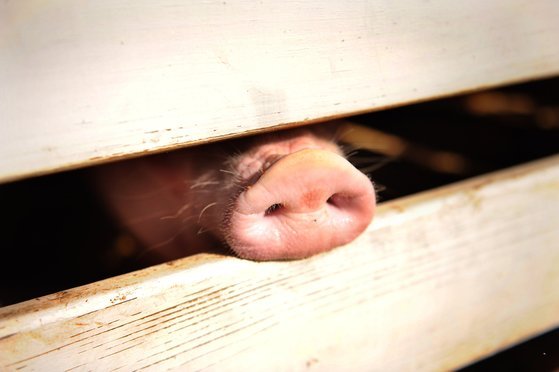SEOUL — South Korean farmers are urging local authorities to make efforts to normalize pork prices here in the face of the African swine fever outbreak, industry watchers said Saturday.
The local wholesale price of pork reached 2,809 won ($2.4) per kilogram, plunging 28.2 percent from a year earlier as of end-October, the latest data compiled by the Ministry of Agriculture, Food and Rural Affairs showed.
The price is far below the production cost estimated at 4,200 won, according to the Korea Pork Producers’ Association.
“With the current level of the price, farmers are losing around 150,000 won per pig,” an official from the association said.
Local farmers claimed South Korea should refrain from making excessive quarantine operations on local farms and instead focus efforts on preventing the spread of the disease via wild boars.
They also urged the authority to ease related regulations to normalize the local pork industry.
Since mid-September, South Korea has suffered a total of 14 cases of ASF among local pig farms. Quarantine authorities have been culling more than 250,000 pigs since the first-ever outbreak, with some 60,000 more to be slaughtered.
Separately, South Korea also observed 18 ASF cases from wild boars. So far, all reported cases from domestic pigs and wild boars have been in areas bordering the North.
Despite ASF not being harmful to people, some local consumers have been avoiding pork.
A survey compiled by the Korea Rural Economic Institute on 526 consumers last month showed 45.4 percent of the respondents had reduced their consumption of pork from a year earlier.
Of the respondents who consumed less pork, 70.3 percent claimed they were concerned about the safety of the meat.
“Although no ASF cases have been confirmed for more than three weeks since the last case reported on Oct. 9, the price of pork is showing no signs of a recovery,” the Korea Pork Board said in a statement.
The organization vowed to launch a campaign to promote the consumption of pork throughout this month, offering discounts and improving the public’s awareness of the disease. Yonhap
